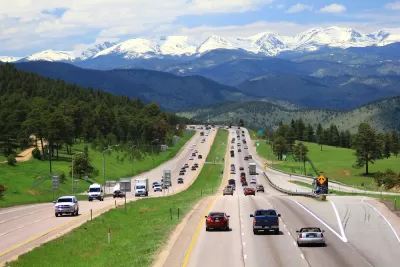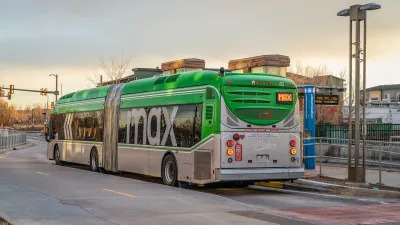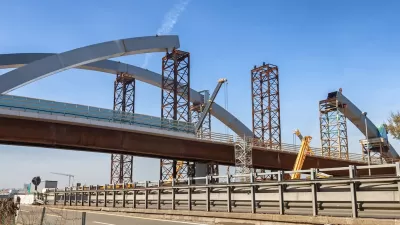A state audit criticized the agency for taking a haphazard approach to awarding contracts for major projects.

“The Colorado Department of Transportation’s increasing use of untraditional contracting approaches for large highway projects has been hampered by problems with how the deals are awarded, negotiated and managed, state auditors found in a recent report.”
Jon Murray reports on the story in The Denver Post, writing that “Critics contend these newer forms of contracting — used for work including the $1.3 billion Central 70 project in Denver and major widening projects on Interstate 25 south and north of metro Denver — favor larger companies, often from out of state, and risk costing taxpayers more.”
For its part, CDOT claims the new contracts save the agency time and money and improve the efficiency of projects. “It lets projects get started earlier than they usually would, and therefore get concluded earlier than they otherwise would. That is where the value is for the public,” said CDOT spokesman Matt Inzeo.
But the audit claims the agency doesn’t follow “sound, consistent and transparent processes” for awarding and carrying out contracts. “The audit also highlighted a case in which an unsuccessful bidder for the $419 million I-25 South Gap project south of Castle Rock was among three firms short-listed and evaluated, despite its proposal missing a required section.”
The agency ultimately agreed with the audit’s recommendations for improving contract oversight and management.
FULL STORY: Audit criticizes CDOT’s handling of contracts that abandon low-bid approach for some major projects

Alabama: Trump Terminates Settlements for Black Communities Harmed By Raw Sewage
Trump deemed the landmark civil rights agreement “illegal DEI and environmental justice policy.”

Study: Maui’s Plan to Convert Vacation Rentals to Long-Term Housing Could Cause Nearly $1 Billion Economic Loss
The plan would reduce visitor accommodation by 25% resulting in 1,900 jobs lost.

Why Should We Subsidize Public Transportation?
Many public transit agencies face financial stress due to rising costs, declining fare revenue, and declining subsidies. Transit advocates must provide a strong business case for increasing public transit funding.

Paris Bike Boom Leads to Steep Drop in Air Pollution
The French city’s air quality has improved dramatically in the past 20 years, coinciding with a growth in cycling.

Why Housing Costs More to Build in California Than in Texas
Hard costs like labor and materials combined with ‘soft’ costs such as permitting make building in the San Francisco Bay Area almost three times as costly as in Texas cities.

San Diego County Sees a Rise in Urban Coyotes
San Diego County experiences a rise in urban coyotes, as sightings become prevalent throughout its urban neighbourhoods and surrounding areas.
Urban Design for Planners 1: Software Tools
This six-course series explores essential urban design concepts using open source software and equips planners with the tools they need to participate fully in the urban design process.
Planning for Universal Design
Learn the tools for implementing Universal Design in planning regulations.
Smith Gee Studio
Alamo Area Metropolitan Planning Organization
City of Santa Clarita
Institute for Housing and Urban Development Studies (IHS)
City of Grandview
Harvard GSD Executive Education
Toledo-Lucas County Plan Commissions
Salt Lake City
NYU Wagner Graduate School of Public Service





























